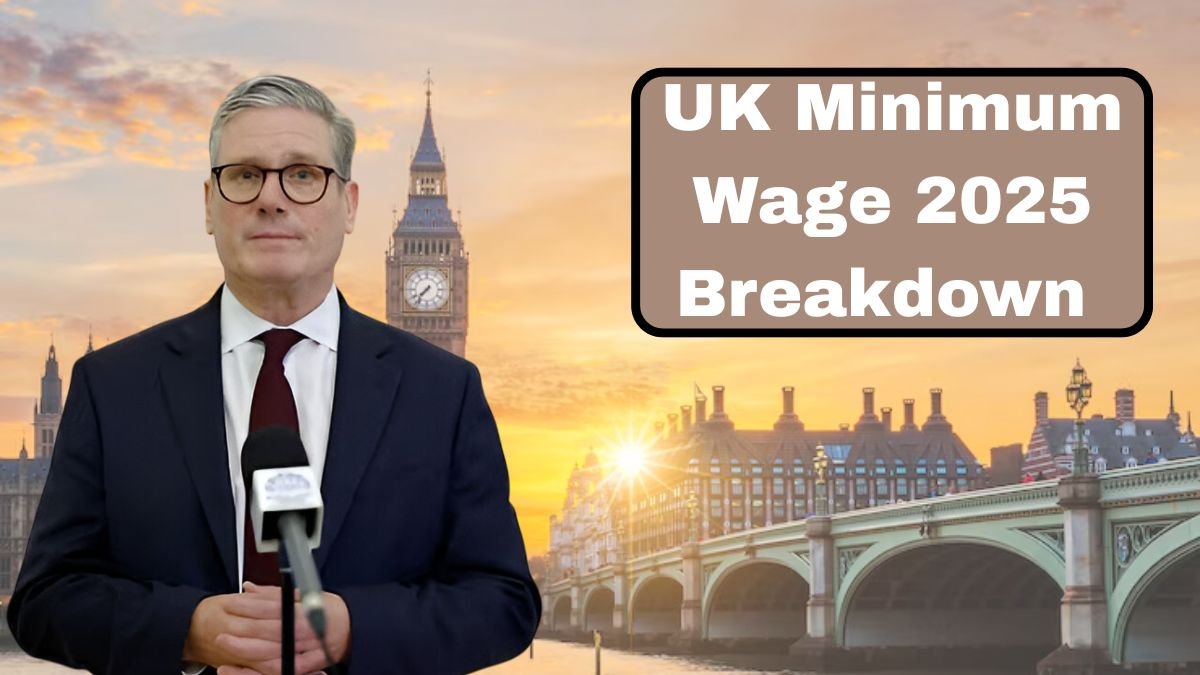Introduction: With the beginning of 2025, the United Kingdom (UK) government has made significant changes to the minimum wage cost of living rates. Keeping in mind the constant increase in the cost of living, this update has brought relief news for millions of employees.
The minimum wage in the UK is the minimum rate that an employer has to pay to his employee, which is fixed by law. Its purpose is to ensure that employees never have to suffer exploitation, and they can lead a dignified life in this article what changes have been made in the minimum wage in the UK in 2025, who will it affect, and who will benefit from it.
Who gets the minimum wage in the UK?
There are two major categories in the UK:
- National Minimum Wage (NMW): Employees above 16 years of age who are not apprentices.
- National Living Wage (NLW): Employees who are 21 years of age or older.
An important change in 2025 is that the National Living Wage will now be applicable from the age of 21, which was earlier for 23 years and above. This will directly benefit employees of 21 and 22 years.
Who will get the most benefit?
- Employees of 21 and 22 years: Earlier this youth category used to come under the National Minimum Wage, but now it has come directly into the National Living Wage category. This will give them additional income of £1.02 per hour.
- Apprentices and younger employees (16-20): For the first time, such a big jump has been seen in the salary of Apprentices, which will give them strong financial support.
- Workers in Retail, Hospitality and Care Sectors: Most of the young, low-income group employees in these sectors are. They will get direct benefit from the increase in minimum wage.
What difference will the increase in salary make?

- Living will become easier: In view of rising inflation, energy bills and rent, this increase has brought relief to the people. Especially for those families who depend on weekly wages.
- Motivation and work satisfaction: When the employee gets a fair price for his labor, he performs better. This also increases productivity.
- Economic empowerment: The purchasing power of the low-income group will increase, which will also increase consumption in local markets and will give impetus to the economy.
Why was this increase made?
The UK government took this decision keeping in mind several reasons:
- Living had become difficult due to rising inflation.
- Based on the recommendations of the Low Pay Commission.
- It was already planned to bring the Living Wage to £11.44 by 2024.
- To promote fairness and equal pay.
This change is favorable for everyone
The working class and trade unions are, in fact, cheering the change; however, the small businesses lament the impracticality of an increase that they would not be able to sustain.
- Specifically: Small hotels, cafes, local retail shops
- Home care services
- Temporary workers working in the agricultural sector
- However, the government has also announced tax incentives and support schemes for this.
Minimum wage vs real living wage
Many charitable organizations are also saying that: Although the minimum wage has increased, the Real Living Wage, that is, what a person really needs to live a dignified life, is still more than this.
According to the Real Living Wage Foundation: £13.15 per hour in London Under this plan, workers receive a monthly wage of £24 while the shortage belt (material for Royal Hall endcap and steps and railing materials) is provided on a monthly basis.
Government response
The UK Government has stated that:
- Our aim is to ensure that every worker gets a fair wage for the hard work they do.
- We are committed to paying every eligible worker a living wage by 2025.
- We will also introduce schemes to support small businesses.
Conclusion:
The 2025 change is not just a number, but a decision that will bring positive change to millions of people’s lives. This move recognises the people who work hard every day for their families and society Make Sure That You Are Paid The New Minimum Wage When You Are An Employee Implement Thus Changes On Time If You Are An Employer To Keep The Reputation Of Your Business Ethical As Well As Legal.
FAQs
Q1. What is the new UK minimum wage for 2025?
A. From April 2025, the National Living Wage (NLW) will rise to £11.44 per hour for workers aged 21 and over. Other age groups and apprentices will also see significant increases.
Q2. Who benefits the most from the 2025 minimum wage increase?
Workers aged 21 and 22 benefit significantly as they now qualify for the National Living Wage, rather than the lower youth rates. Apprentices and young workers also see notable pay hikes.
Q3. Why did the UK government increase the minimum wage in 2025?
To help workers cope with rising cost of living, inflation, and to ensure fair pay, based on recommendations from the Low Pay Commission.
Q4. Is the National Living Wage now applicable to 21-year-olds?
A. Yes. In a major shift from previous years (where NLW was for 23+), 21-year-olds will now be entitled to £11.44/hour from April 2025.
Q5. When will the new rates take effect?
A. The updated minimum wage rates come into effect from 1st April 2025.


